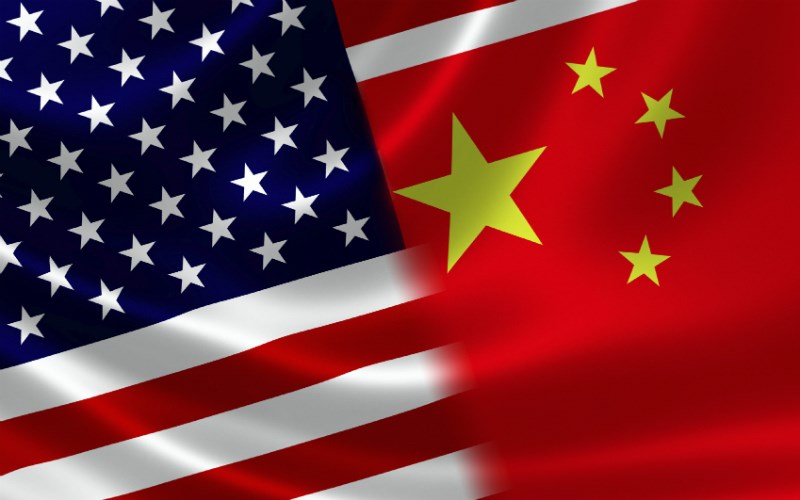In the 1920s, Secretary of State Henry Stimson believed that “gentlemen do not read each other’s mail,” meaning he opposed the idea of nations keeping a close eye on one another.
A hundred years later, Stimson would probably believe it rude and uncivil for a communist world super power to monitor the United States and train enemy troops 100 miles from our shoreline. That, however, is what Americans face as China and Cuba engage in talks that could lead to a Chinese base in the communist island nation south of Miami. Meanwhile, current Secretary of State Anthony Blinken didn’t really head that off when he met with Chinese leaders over the weekend.
 From a U.S. perspective, Blinken’s trip left a lot to be desired according to U.S.-China observers, since Blinken at best failed to return with a even a promise of better relations. At worse, China smelled weakness.
From a U.S. perspective, Blinken’s trip left a lot to be desired according to U.S.-China observers, since Blinken at best failed to return with a even a promise of better relations. At worse, China smelled weakness.
Talking about Blinken's trip on the "Washington Watch" program, Sen. Tommy Tuberville said the Secretary of State was "scolded" for shooting down the Chinese spy balloon and for supporting Taiwan's military defense, and after that scolding Blinken retreated on both issues.
 Sen. Lindsey Graham (R-South Carolina), also a "Washington Watch" guest, agreed with that dim assessment.
Sen. Lindsey Graham (R-South Carolina), also a "Washington Watch" guest, agreed with that dim assessment.
“We go uninvited to China to smooth things over. You talk about a sign of weakness," he complained. "Can you imagine (Donald) Trump going to China like that? The Chinese must be just laughing. They are spying on us a hundred miles away in Cuba, and we're coming to China really uninvited to make sure that everybody's happy."
In 1929, Stimson shut down funding for the Black Chamber whose purpose was to crack codes and gather intelligence. He would later serve as Secretary of War under Franklin Roosevelt and Harry Truman during World War II when cracking codes led to Allied success against the Germans.
Report: China-Cuba talks advanced but not final
The Wall Street Journal reported Tuesday that U.S. intelligence believes talks about a facility on the northern coast of Cuba “are at an advanced stage but not concluded.” The Biden administration has been in touch with the Cuban government in hopes of convincing officials to end the talks.
China, in fact, has been eavesdropping on the U.S. from Cuba for years.
The administration admitted this while working to discredit earlier Wall Street Journal reporting but also blamed the Trump administration.
 “This is an issue that this administration inherited,” an administration official told NBC News. “It was our assessment that, despite awareness of the basing efforts and some attempts to address this challenge in the past administration, we were not making enough progress and needed a more direct approach.”
“This is an issue that this administration inherited,” an administration official told NBC News. “It was our assessment that, despite awareness of the basing efforts and some attempts to address this challenge in the past administration, we were not making enough progress and needed a more direct approach.”
The new twist is Chinese troops on Cuban soil. That would allow China to not only listen electronically but to run human intelligence operations much easier as it would be much closer to the U.S.
Retired Lt. General Jerry Boykin, now with the Family Research Council, told Perkins it’s clear China is in an “intel war” against the U.S. from the island of Cuba.
“It's a perfect place to do that," Boykin, a former Delta Force commander, warned. "They're in the right footprint to be able to use every system that they have 90 miles off our coast. It’s shameless that we have allowed that to happen on this administration's watch."
Boykin noted that the U.S. military’s Southern Command is headquartered in Miami.

“Most of our biggest breaches of intel have occurred through human assets, and I can tell you from my pervious experiences that (Cuba) is a perfect place," he explained. "They love to go into Cuba and recruit assets and run those assets, sometimes in America but sometimes in other Latin countries, but they’ll run those assets."
Here in the U.S., Boykin told Perkins that U.S. intelligence officials are really good at guarding their secrets “but not perfect.”
“We’re really good at protecting our intel, but the question is how many of those not perfect operations do they have to intercept now with human intelligence because they’ve got the Cubans that come back and forth?” Boykin asked.
Human intelligence assets are much harder to detect, he added.
Tuberville: The job is too big for Blinken
On the "Washington Watch" grogram, Tuberville said Blinken is the wrong man to represent America in talks with China. He has no "sales skills" and no charm in a job that requires both.
 "He goes and he takes punches and never gives punches," the Senator complained. "I've evaluated people all my life, and this guy is not a fighter. The guy just gives away everything, and that that's what he did this weekend."
"He goes and he takes punches and never gives punches," the Senator complained. "I've evaluated people all my life, and this guy is not a fighter. The guy just gives away everything, and that that's what he did this weekend."
Tuberville said President Joe Biden, not Blinken, should have made the trip to Beijing.
“We need the leadership from the White House, and all we do is follow behind. All we're doing is showing weakness around the world. Nobody respects us anymore, and this was just an absolute debacle,” Tuberville said.

China’s economy, at today’s market prices, is about 61.7% the size of the U.S. economy, but experts believe growth rates project that China will surpass the U.S. by 2033.
“Our GDP now is about $21 trillion, China is about $17 trillion, and Russia is about $1.4 trillion," Tuberville said. "We’ve left Russia way behind, but China has picked up where Russia left off about 10-15 years ago, and now they've caught up to us."
China will pass the U.S. soon if we continue to bow down and refuse to fight back, Tuberville said.
"We not fighters anymore,” he concluded.







